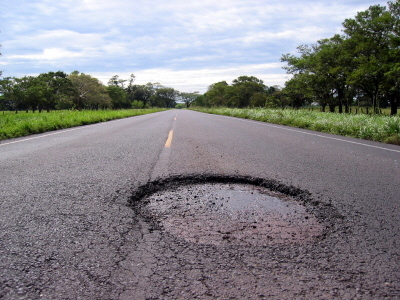Happening Now
Spinning the budget, kicking the can down the road while the roads (and Amtrak) deteriorate
November 26, 2013
Written By Ross Capon
Amtrak figured in a rather positive way in a November 21 Washington Post editorial, “Where the money is: As Congress faces yet another spending deadline, it continues to ignore the true debt problem.” The Post was ridiculing suggestions about what would constitute meaningful budget savings. Here’s the key passage: The Congressional Budget Office’s latest report on deficit-reduction says “Congress and the president must resolve to tackle programs and tax breaks that benefit middle- and upper-middle-class America. That’s not what you generally hear from Republicans, who emphasize savings from, say, eliminating Amtrak subsidies (a mere $15 billion item over 10 years, according to the CBO report) or tightening food stamp eligibility ($50 billion).” The editorial goes on to chastise Democrats for putting too much faith in eliminating such things as “tax preferences for oil drilling and the like ($34 billion).”

And back on November 4, the Financial Times lead story was headlined, “US growth fears as across-the-board budget cuts hit public investment.” Here’s the first sentence and another key sentence: “Public investment in the US has hit its lowest level since demobilization after the second world war, largely as a result of Republican success in stymieing President Barack Obama’s push for more spending on infrastructure, science and education. … The biggest falls are in infrastructure, especially construction of schools and highways by states and municipalities.” An inside story reported that the town of Marlette, MI, is one of “a number of small communities that have pulverized their roads and gone back to gravel.”
In Washington, many are betting on a rerun of the fall. That is, a continuing resolution that may push back a government shutdown beyond the January 15 deadline, and more “creative measures” at the Treasury Department which will push the next debt ceiling deadline from February 7 into March.
All this is not encouraging about investing appropriately in passenger trains, but keeping the pressure on is our best chance to get such investments whenever public spending fortunes turn.
Image from Wikimedia Commons.
"We would not be in the position we’re in if it weren’t for the advocacy of so many of you, over a long period of time, who have believed in passenger rail, and believe that passenger rail should really be a part of America’s intermodal transportation system."
Secretary Ray LaHood, U.S. Department of Transportation
2011 Spring Council Meeting
Comments